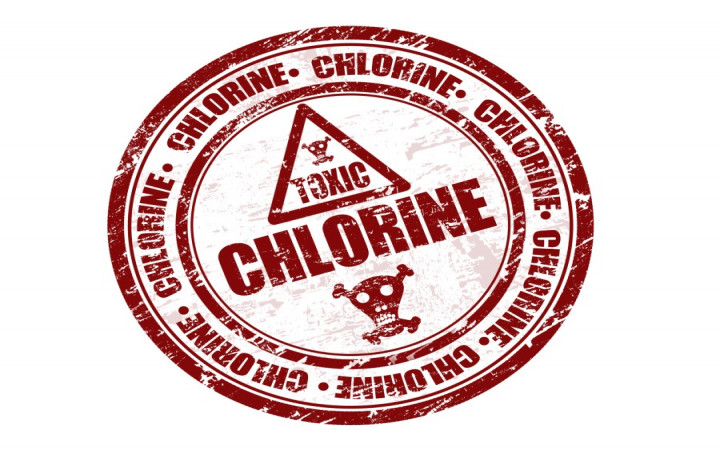Today’s Wonder of the Day was inspired by Addison. Addison Wonders, “Why is chlorine put in pools?” Thanks for WONDERing with us, Addison!
During the dog days of summer, there’s nothing quite like a day at the pool. Donning your swimsuit and doing a cannonball into a pool full of cool water is one of the best ways to cool off. As you sink down to the bottom, the water surrounds you. It refreshes you like no shower ever could!
Do you spend a lot of time at the pool during the summer? If so, you might notice that your skin gets very dry after a few hours in the pool. If you’re there long, your eyes might also become red and irritated. Why does that happen? It’s because the pool probably has chemicals in it that keep the water fresh and bacteria-free.
What chemicals might you find in pool water? One of the common chemicals found in most pools is chlorine. What you might not realize, though, is that chlorine is a gas, not a liquid!
Chlorine is a chemical element. It’s one of the most common substances on Earth. Pure chlorine is very rare. It takes the form of a yellow-green gas. Pure chlorine gas is poisonous. It can even be lethal. In fact, many countries have used chlorine gas as a weapon during war.
When mixed with other elements, chlorine can be quite safe. Do you ever salt your food? Then you’re consuming chlorine. Combining chlorine with sodium makes sodium chloride. That’s the scientific name of common table salt.
Chlorine is an ingredient in many products. Because of its bleaching and disinfectant abilities, it’s used in many cleaning supplies. This is why chlorine is used in swimming pools. In pool water, chlorine kills bacteria and keeps the water clean.
Swedish chemist Carl Wilhelm Scheele is given credit for discovering chlorine. He didn’t realize it was an element at the time. Instead, he thought it was a combination of elements. Nonetheless, Scheele made pure chlorine gas by mixing hydrochloric acid and the mineral pyrolusite.
Today, chlorine compounds are used to purify drinking water. These compounds are added in water treatment plants. They make water safe for the public to drink. Between salt and water, most people consume chlorine every day.
The next time you swim in a pool, think about how chlorine affects you. Does it dry your skin? Burn your eyes? Those are totally normal reactions! It may irritate us in some ways, but chlorine keeps pool water clean and safe for us to use.
Standards: NGSS.PS1.A, CCRA.L.3, CRA.L.6, CCRA.R.1, CCRA.R.2, CCRA.R.4, CCRA.R.10, CCRA.W.4, CCRA.SL.1, CCRA.SL.2




